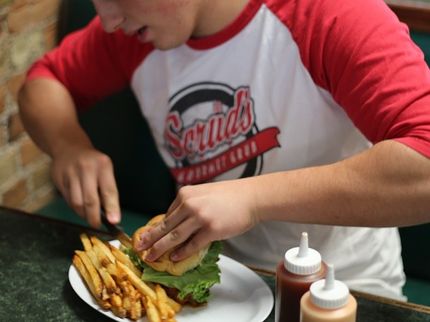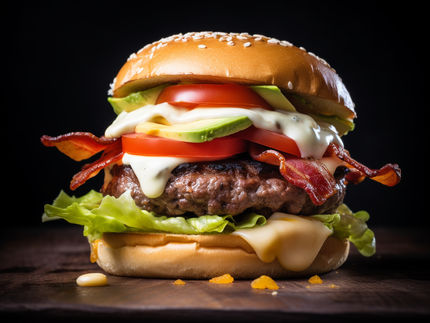Teens not getting enough sleep may consume 4.5 extra pounds of sugar during a school year
sleep is vital for all people but is particularly important for teenagers as their bodies undergo significant development during their formative years. Unfortunately, most teens aren't getting enough sleep. Data from the American Academy of Pediatrics found that 73% of high school students are getting less than the recommended eight to ten hours of sleep each night.

New research from BYU conducted at Cincinnati Children's Hospital Medical Center says insufficient sleep also increases the risk of weight gain and other cardiometabolic diseases among teenagers because teens have worse dietary habits when they sleep less.
BYU Photo
Prior research has linked lack of sleep to increased risk for poor mental health, poor academic performance, and behavioral problems. But new research from BYU conducted at Cincinnati Children's Hospital Medical Center says insufficient sleep also increases the risk of weight gain and other cardiometabolic diseases among teenagers because teens have worse dietary habits when they sleep less.
"Shortened sleep increases the risk for teens to eat more carbs and added sugars and drink more sugar-sweetened beverages than when they are getting a healthy amount of sleep," said Dr. Kara Duraccio, BYU clinical and developmental psychology professor and lead author of the study.
This research, which was recently published in the medical journal SLEEP, analyzed the sleeping and eating patterns of 93 teenagers during two sleep conditions: spending six and a half hours each night in bed for one week (short sleep) and spending nine and a half hours each night in bed for another week (healthy sleep). Researchers measured the caloric intake, macronutrient content, food types, and the glycemic load of foods eaten by teens.
The results found that teenagers undergoing short sleep consumed more foods that were likely to spike blood sugar fast – things like foods high in carbs and added sugar, or sugary drinks, compared to when they were in healthy sleep. These changes largely occurred in the late evening (after 9:00 pm). Teens getting short sleep also ate fewer fruits and vegetables across the entire day, compared to healthy sleep.
"What's interesting is that getting less sleep didn't cause teens to eat more than their peers getting healthy sleep; both groups consumed roughly the same amounts of calories of food. But getting less sleep caused teens to eat more junk," said Duraccio. "We suspect that tired teens are looking for quick bursts of energy to keep them going until they can go to bed, so they're seeking out foods that are high in carbs and added sugars."
The research found that teens in short sleep consumed 12 extra grams of sugar each day. With most teenagers not getting sufficient sleep during the 180 nights of a school year, an extra 12 grams of added sugar each day could result in over 4.5 pounds of extra sugar each year.
"We know that pediatric obesity is an epidemic, and we've focused on a lot of interventions to try and address it, but sleep is not one of the things that researchers tend to focus on," said Duraccio. "If we are really trying to discover preventative strategies or interventions to increase optimal weight in teens, getting enough and well-timed sleep should be at the forefront of our efforts."
Duraccio admits that it's difficult for teenagers to maintain a healthy sleeping schedule; teens are busy with rigorous academic schedules and a slew of extracurricular activities. Compound this with early start times for school and the result is short and ill-timed sleeping patterns that become a habit.
"It's human nature to think that when we have a long to-do list, sleep should be the first thing to go or the easiest thing to cut out," she said. "We don't recognize that getting enough sleep helps you accomplish your to-do list better. Sleep health should be incorporated into all prevention and intervention modules for child obesity."
The research was supported by the United States National Institutes of Health.





























































